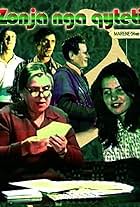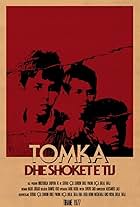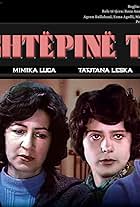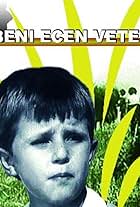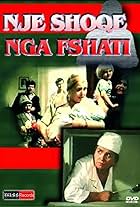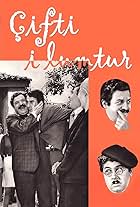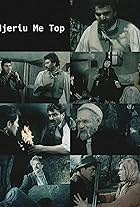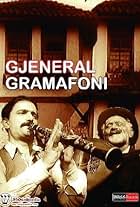Advanced search
- TITLES
- NAMES
- COLLABORATIONS
Search filters
Enter full date
to
or just enter yyyy, or yyyy-mm below
to
to
to
Exclude
Only includes titles with the selected topics
to
In minutes
to
1-50 of 239
- Albania early 70'. A WW2 hero, retreated now at an old age at his little village struggles to adjust to the terms of the culture revolution, coming in the shape of 'equal rights for man and women'. In a brilliant contrast of a brand new world of youthful revolutionarys and rich exotic and colourful expressions this comes across as arguably the best loved Albanian comedy of all time
- A tale of orphaned Albanian children coping with life in an orphanage and Italian occupation while acquainting themselves with communist ideas.
- It is a comedy about an old albanian lady and her daughter who move from the city to a village. Her daughter falls in love while she is there but her mother (Ollga) will try everything to marry her with a man who comes from the city.
- The Wehrmacht arrives in a small Albanian town after Italy capitulates to the Allies. Tomka and his gang decide to exact revenge when the German soldiers set up camp on their football pitch.
- A translator at the conference of communist parties witnessed the biggest break between the two communist parties. The dramatic events in the military conflict take place on a naval base in Albania, which the Soviets did not dare to adopt.
- Three people, Sergeant Rahmiu, Islam and Bepini hijack a military ship to emigrate to Italy. Along the way they encounter opposition in the sailor Skender Guri, who wants to turn the ship back to Albania.
- Based on the real story of two Albanian female war heroes, Bule Naipi and Persefoni Kokëdhima who got caught by Nazi Germans and subjected to torture because of their communist link.
- A child actor copes with the separation of his parents.
- A spoiled kid do not go to school and tell his parents that her older sister has a boyfriend. The delicate relationship between him and his parents cause laugh and compassion at the same time.
- The adventures of a young boy , who comes to live from city to a village during school vacations .
- On the anniversary of the death of Commissioner Ibrahim Kovaçi, six of his war friends are accompanying his statue to his native village, where a ceremony will be held. During the road, each of them remembers moments related to the life of Ibrahim.
- Katrina and Xhavit, two young volunteers working on the construction of a railroad, fall in love and decide to marry. However, the girl's father does not approve this marriage.
- Story depicting the national liberation struggle of the Albanian people against the Italian and German invaders during World War II.
- Koli Kola has spent his entire life as a deputy director in a enterprise and when he finds out that the new director will be appointed, he does everything to get him elected.
- Three different stories related to the war, a driver transporting weapons, a group of people building a bridge, and a partisan brigade led by Meto fighting for the liberation of Albania.
- A woman that lived all her life in a city moves out to a village and starts living the life of a countrywoman feeling uncomfortable while trying to find a husband for her daughter all happening in a series of comic events.
- The movie depicts a love story in a students campus where the feelings, love, and humor are interlaced with each-other.
- Adaptation of the novel with the same title from Dritëro Agolli. Mato Gruda has been feuding with the old man Mere Fizi. Mato Gruda keeps a gun in a hidden place dreaming to use it against Fizies. He keeps an Italian as a helper at home, and calls him Agush. Agush became his teacher to use his war s tool. Hence, the secret of a peasant who joined the war out of necessity comes to light.
- In 1943, during the wartime, a young village girl is about to be married. The wedding takes place at an unsuitable moment, but there is a good reason for it: the bridegroom can't wait because he will be going to the mountain to become a partisan.
- Halit Berati, a virtuoso clarinet player, becomes a focus of the resistance by the common people of Albania to the attempts by the Italians in the 1930's to influence their ideology and attitudes by controlling Albanian music, entertainment and literature.
- With abortion as the central issue in this political melodrama from Albania, viewers will react strongly for or against the heroine, depending on their own convictions. After an accomplished concert pianist discovers she is pregnant with her second child, she is dismayed and realizes that she will not be able to continue in her career and take care of a new baby as well. So she asks a committee of doctors for permission to have an abortion and is roundly taken to task for being a pampered intellectual. When asked if he would support an abortion, her husband says he "does not want to become a criminal." In the end, the concert pianist realizes that motherhood is, after all, more noble a calling than the concert stage.


